As FIPS (Find information about products and services) moved into the beta phase, content design, testers and developers joined the agile team.
We started to build out the product for search and browsing DfE services and products using the CMDB as our source of truth. We also looked at the user journey through the product, which included considering; how people understood what the service was, how to use it and how to help to improve the data.
Simplifying the homepage
In our last post we talked about prioritising search on the homepage. The homepage also went through a series of iterations through our rounds of research.
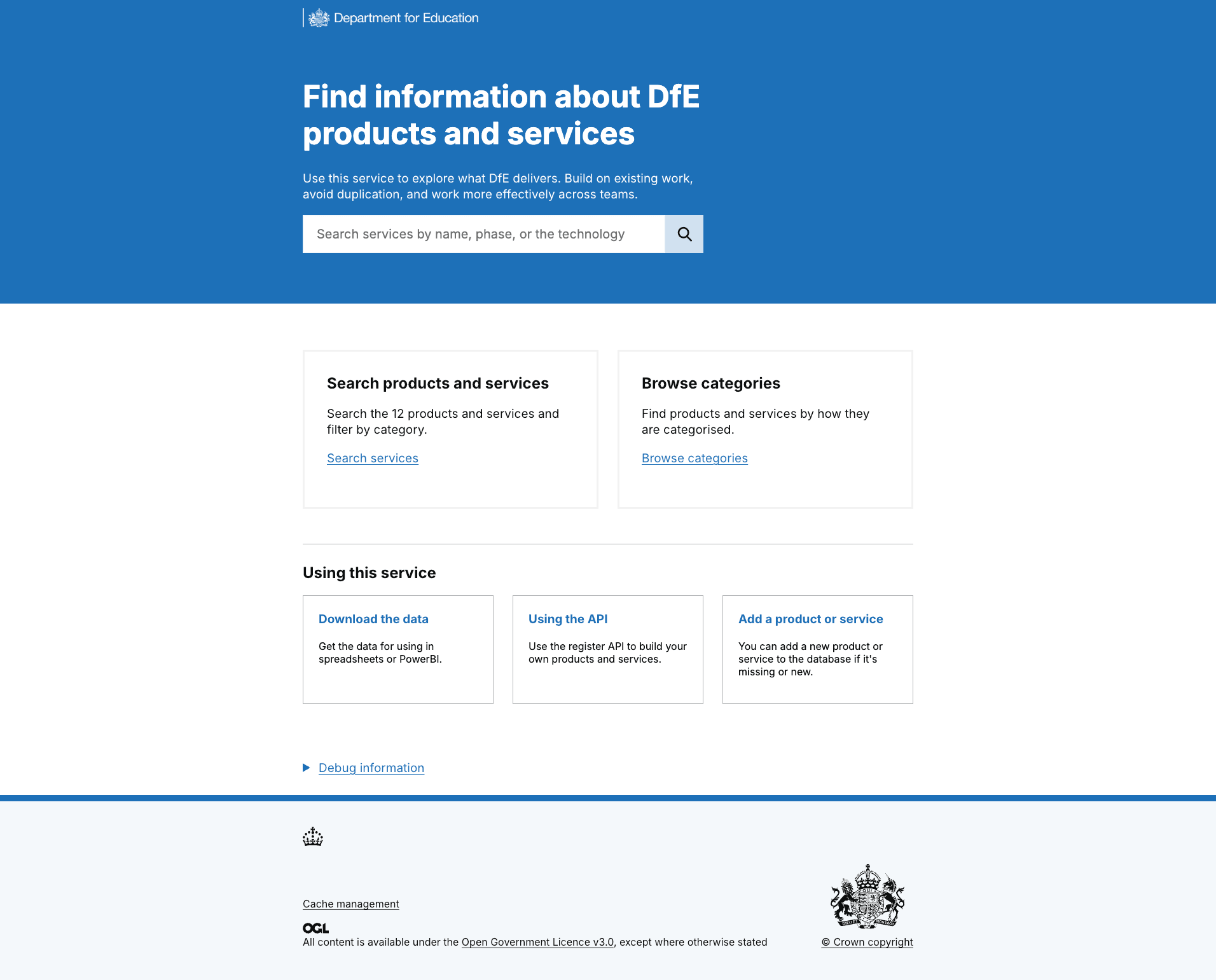
In beta, our initial design included card components that included future functionality, for example, for teams to use the API to build their own products and services, and a call out to action for users to add a product or service.
As we reviewed what was in scope for beta, we added this to our backlog. We focused on what was ‘just enough’ for the MVP (minimal viable product), to build a consistent, reliable and up-to-date list of all products and services in digital, data, technology.
This work involved us reviewing the user journey for people to view services, and add or update products – and we reflected this on the homepage.
Reflecting the user journey for MVP
Based on MVP scope, we iterated the homepage to:
- reflect find options for users – search and filter all products and services and browse by category
- start the journey to update data in the service
- provide context for how users can use the service - the About this service page
- include a user journey for users to update or add missing product information
While search remained the primary function.
We’ll review user feedback, diary studies and research session analysis to determine future iterations.
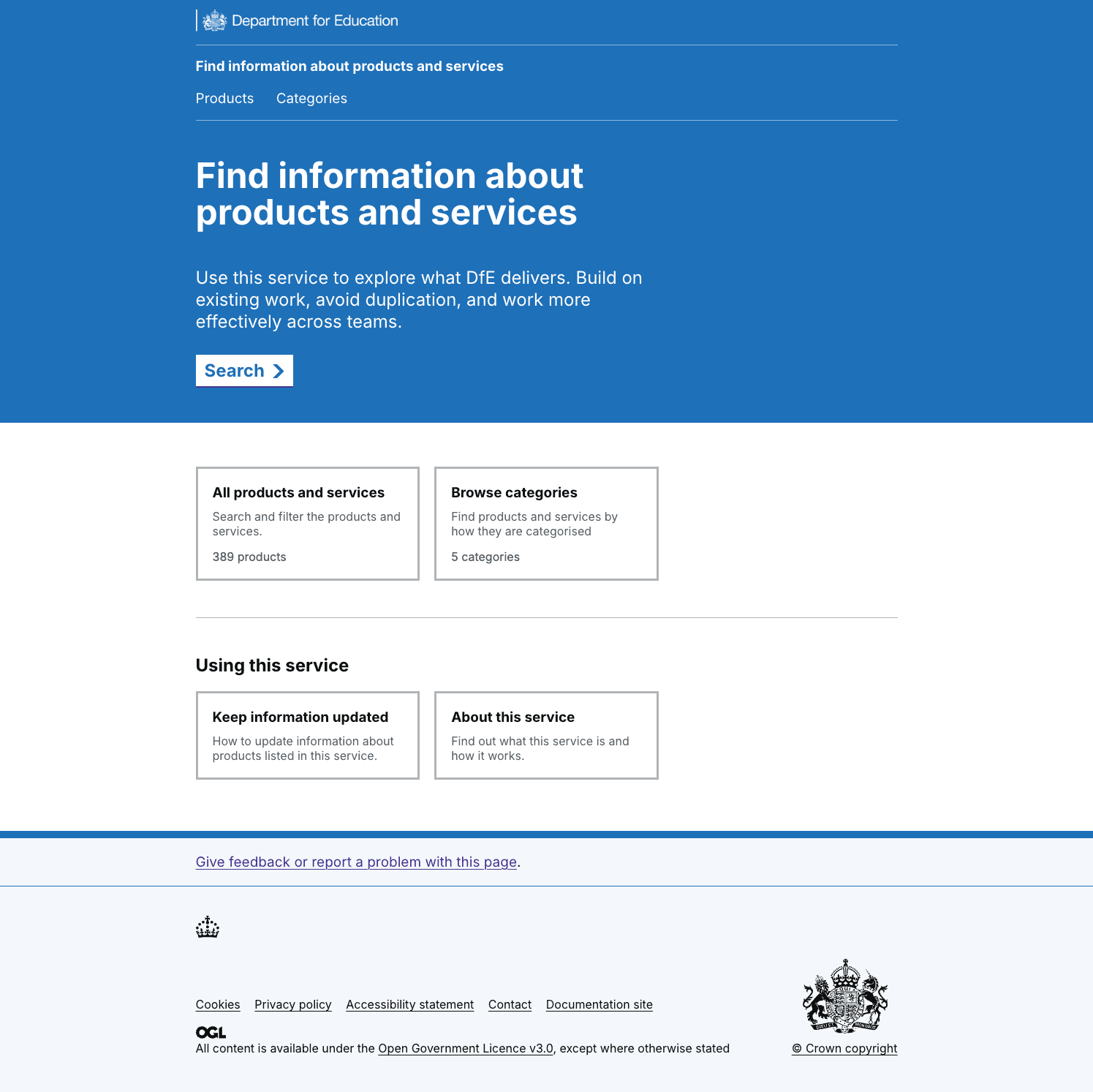
Designing About this service page
Research told us that users, although they believed that a comprehensive list of all products and services would be useful, they would like more context as to how to best use it.
Users told us:
Although the service does not need a start page, we used GOV.UK guidance for start pages to frame what users need, to provide context for the service. We sketched content, ran a crit, checked the reading grade and applied the DfE plain language standard.
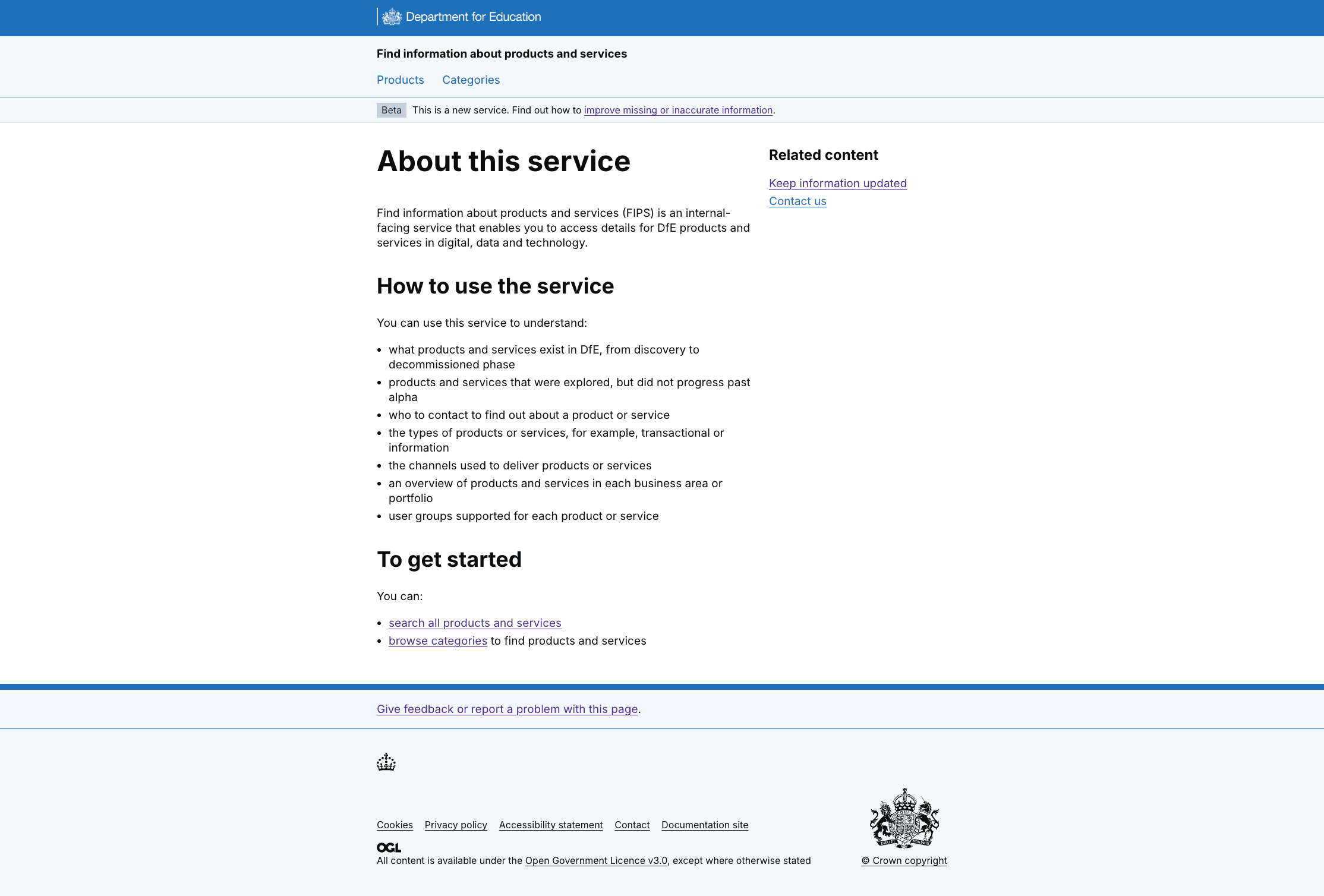
Designing Keep information updated page
We knew that as well as search and find, users will also need to be able to update and add service and product information to FIPS.
MVP content recognises that we know the data in the service is incomplete and that users need to actively help to update it.
It also provides instructions to update and add products.
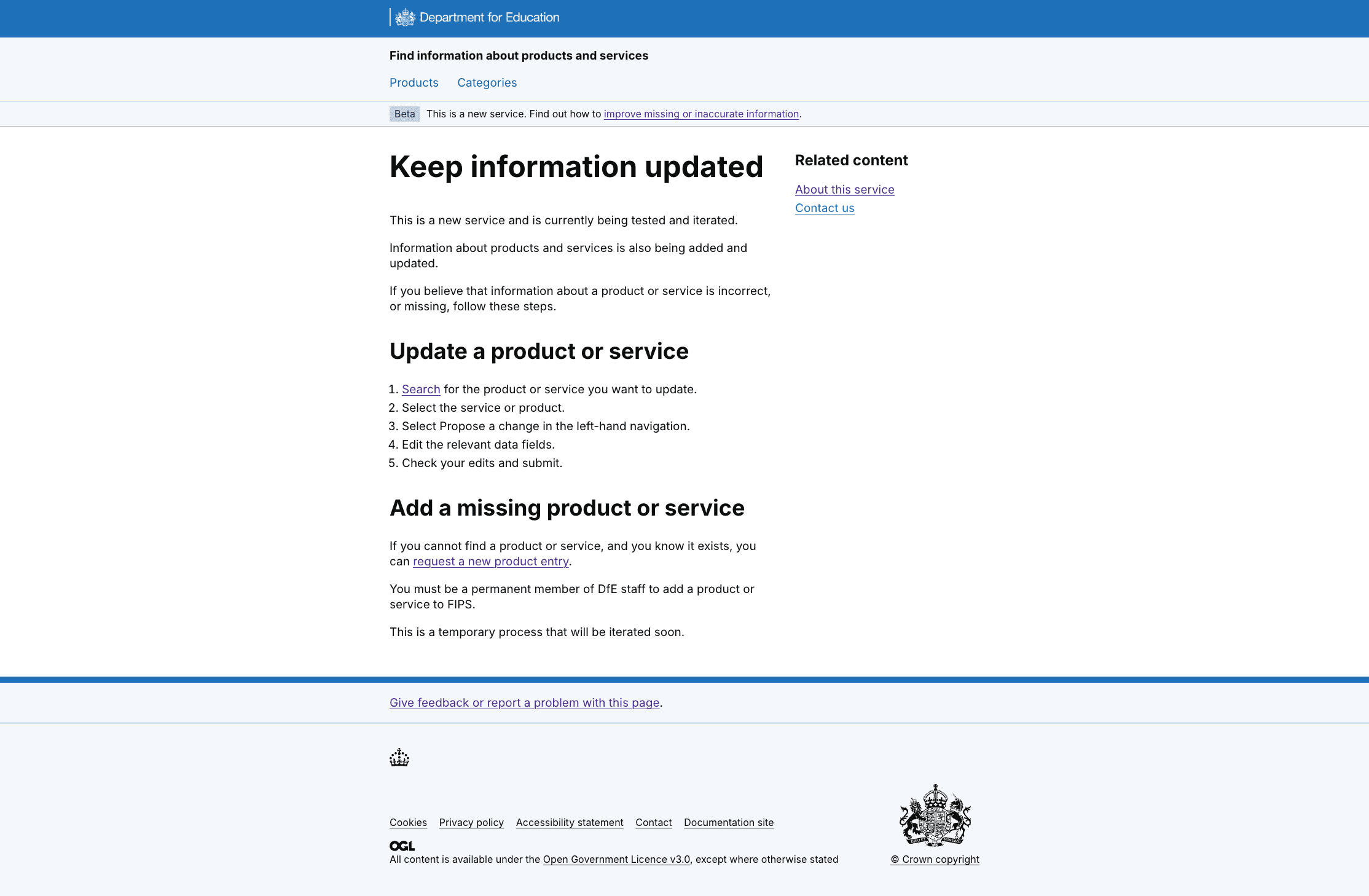
How users can propose a change
In private beta, users will be encouraged to update inaccurate information about their products and services. They can do this through the ‘propose a change’ form on each product page.
The form replays back to users the current information and provides the option to update it. Content includes the caveat that updates must come from civil servants, as they will have longer-standing knowledge of DfE products. We have a business process set up in the team to monitor and update FIPS, plus share updates with the CMDB team – so that all data held is up-to-date. Adding the caveat that information can only be added by civil servants and going through a series of checks by the FIPS team, is in line with user research findings. Users did not like the idea of anyone being able to add or amend service data, or the idea that something could automatically change without someone reviewing it.
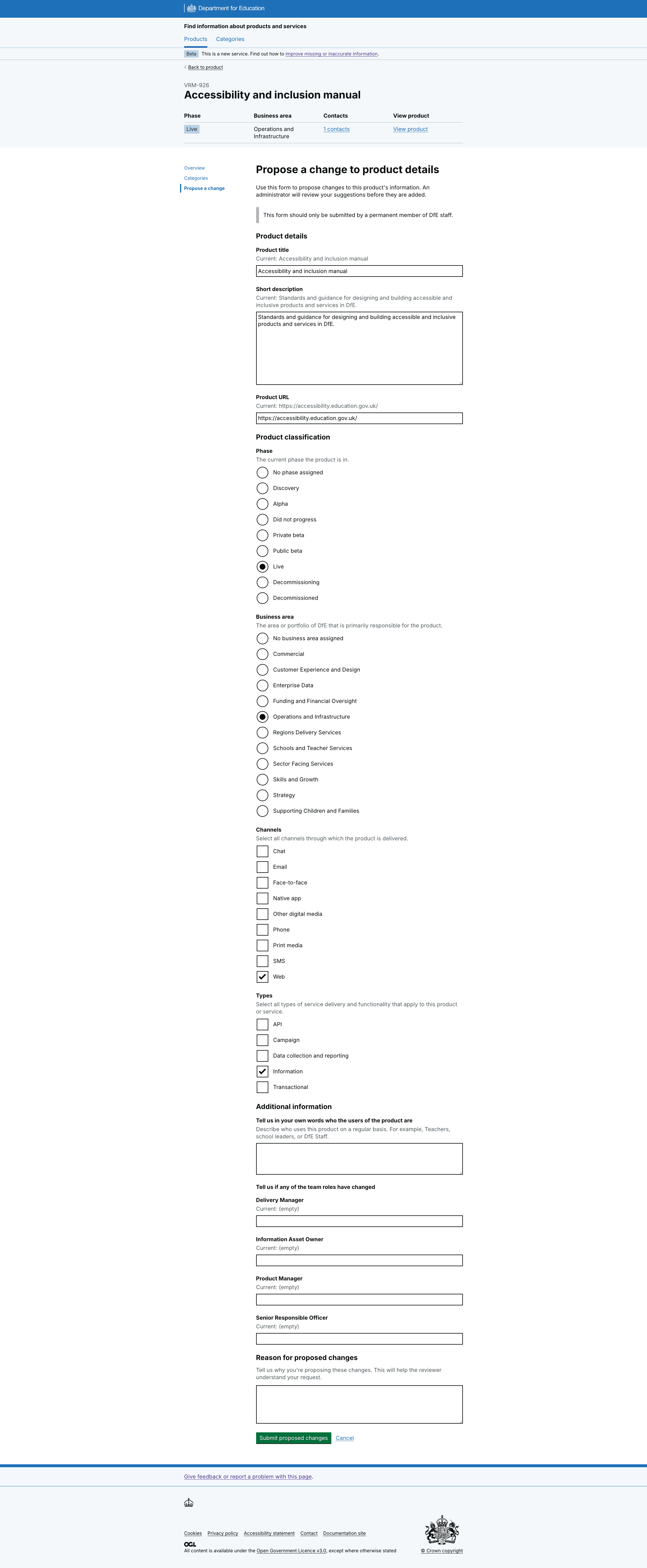
How users can add a product
Apart from updating product information, users can share missing products or services. This is a need, as the data held on CMDB is for products in beta and live, but FIPS will hold information for projects from the discovery phase. This is so that learnings and information about projects can be searched for.
Users can access the Request a new product entry form via the Keep information updated page and the beta banner.

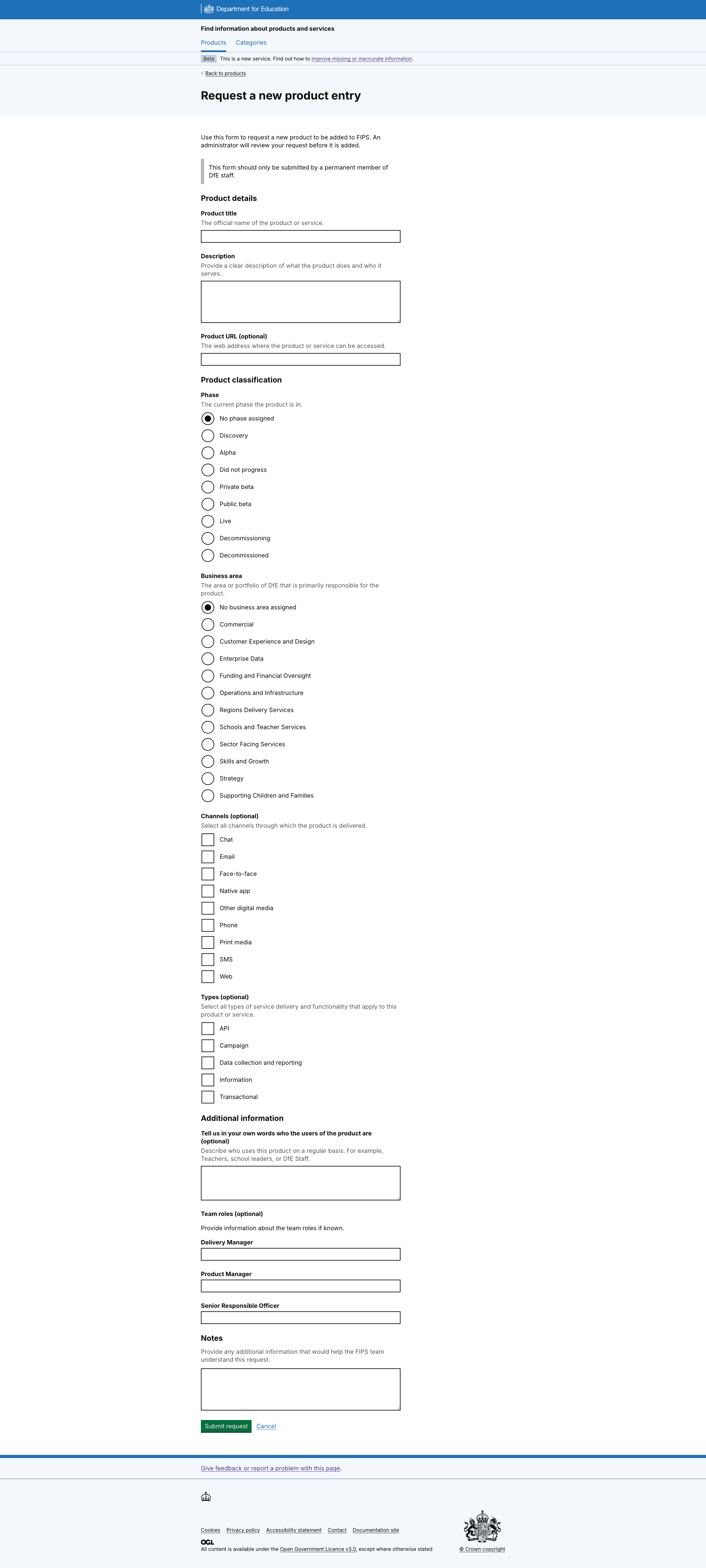
What’s next
After building the private beta in 9 weeks, we have launched to a small group of internal users, including Central Operations and G6s in DDT. We will be monitoring feedback via the service, updating product and service information, conducting diary studies and face-to-face research to learn and improve both FIPS and the data it holds.
